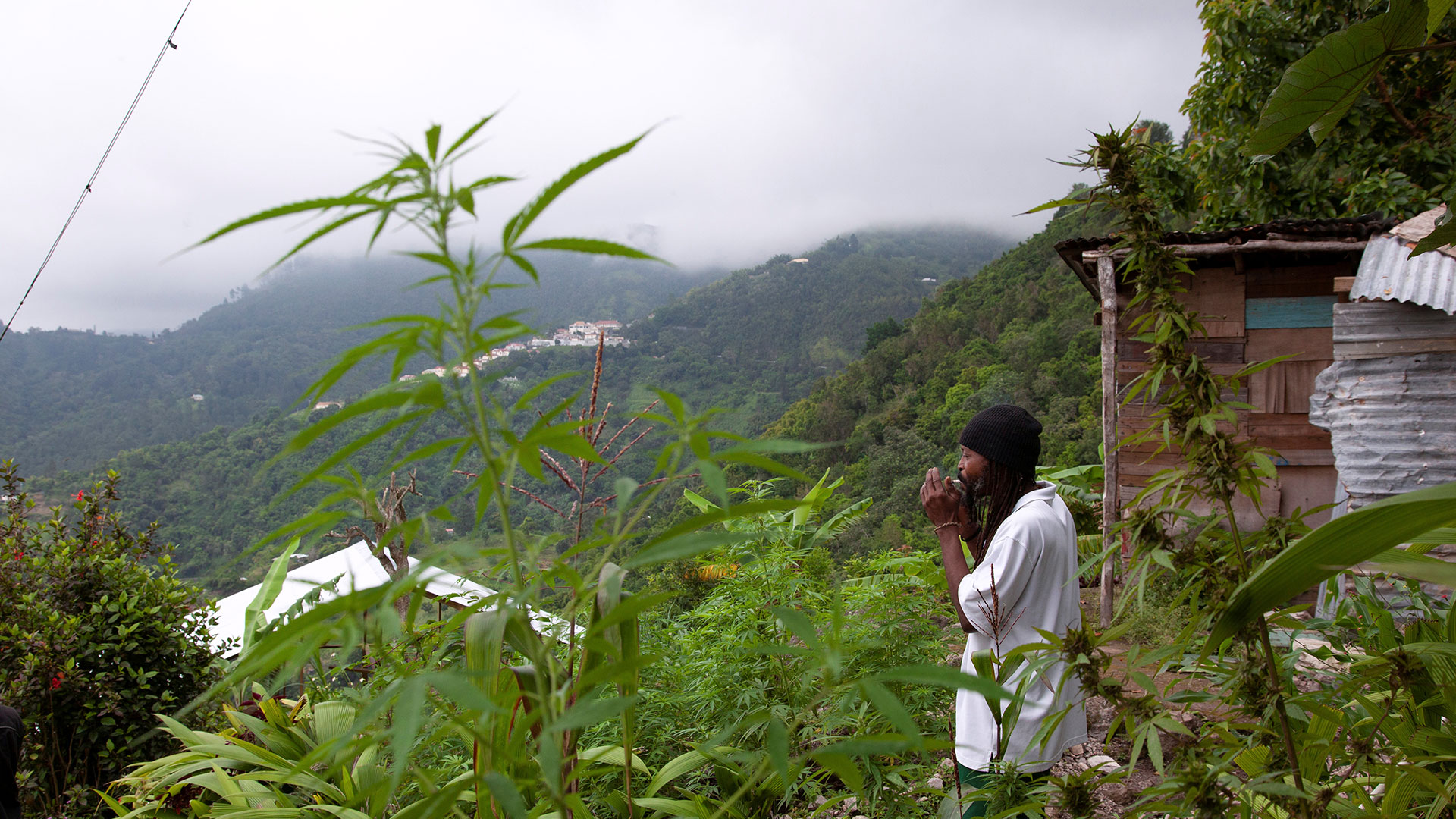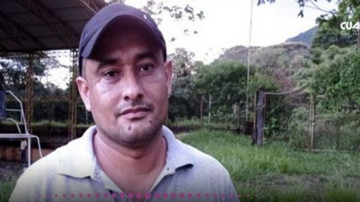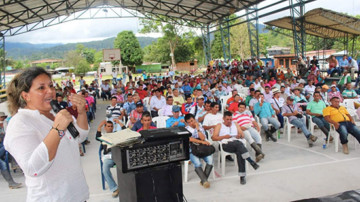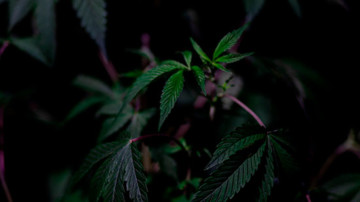
My name is Ras Iyah V. I was born in the West Indies, in the parish of Westmoreland. I’m from a working class background, so I was exposed to the use of ganja (cannabis) from the time I was small. Using, particularly smoking ganja, wasn’t uncommon, even though there were laws against it.
In the 1960s, the laws were drastically changed to the detriment of those who were involved in the use of ganja. There was an incident between the Jamaican government (the police in particular) and people who were considered Rastafarians. Even though the incident involved about 6 individuals, in the space of three days, over 400 Rastafarians were taken to jail.
Most people went to prison for trumped-up charges. Then-Prime Minister, Alexander Bustamante, said about those in jail: ‘Send them up to Bogue [Hill]’. Bogue Hill is where the cemetery is. What the Prime Minister was really saying was that those in jail should be killed.
The Rastafarian movement was known to be an anti-colonial movement. It has always been a movement against the Establishment, the Monarchy and the Constitution. It saw both the government and the opposition as puppets [of these institutions].
[Given these beliefs], it was the intention of the government to get rid of the Rastafari once and for all. An opportunity came about in the shape of what Rastafari call ‘Bad Friday’. It was used by the government to harass, brutalise and, if it had been possible, to get rid of the Rastafari movement.
Nevertheless, the Rastafari remain a force to be reckoned with inside of Jamaica.
As time went on since that incident the law was drastically changed. It was made mandatory that if you were caught with the smallest amount of herb, of ganja, you would go to prison for 18 months.
If having one conviction of possession, you were caught with one plant, you would go to prison for between 5-7 years. This is a situation that led to people, not just Rastafari, being targeted for what they stood for.
Rastafarians weren’t really targeted because of the use of ganja, but because they were an anti-colonial movement. Ganja was used as an avenue to harass and brutalise Rastafarians. It went as far as the police using images of Rastafarians in target practice as part of their training.
It wasn’t until 1972 that the laws were amended, and one then had to pay a fine rather than having to have a minimum jail sentence for the simple possession of ganja.
Rastafarians have stayed active. There have been lots of letters written by Rastafarians to the government. Lots of marches. Calling the government even not to legalise but to decriminalise ganja, because it was just grassroots people and Rastafarians who were really going to prison because of the herb.
In 2015, the laws again were amended. For the first time in the history of Jamaica, Rastafari rights, sacramental rights, were recognised by the government.
Even though it was there in the amendment, Rastafarians continue to face harassment at the hands of the police for having ganja in their possession. Within their farms, homes, travelling, in their vehicles.
A medical ganja industry was also established. But even though the medical industry was established, the people who suffered the most, the grassroots and traditional ganja farmers, have not been able to participate meaningfully in this industry. Because, financially, they can’t afford it.
At the moment, yes, we have an industry. But it is only the privileged few, very few people, including those who used to fight against ganja, who are now in the position to benefit out of this industry.
Rastafarians and other grassroot traditional farmers are in dialogue with the government to change that. Hoping that changes are meaningful and made as quickly as possible.
If not, Rastafarians and grassroots people will take to the streets. Because, usually, there’s no other method that the government recognises.
Peaceful letters have been written. Demonstrations have been made. A lot of dialogue has taken place. But the ganja industry remains in the hands of the rich people; without those who have suffered being able to benefit.
Looking forward to more agitation, organisation, mobilisation, in order to change the situation as it is now. Into what the situation is supposed to be.
Photo : REUTERS
This story was collated with the support of Vicki Hanson (Interdisciplinary Centre for Cannabis Research – ICCR) and has been edited for clarity.


